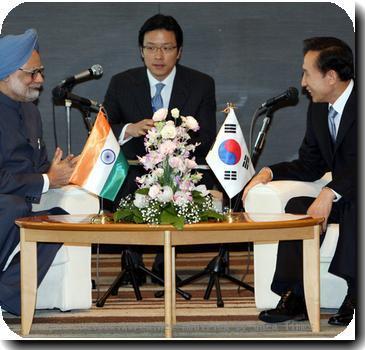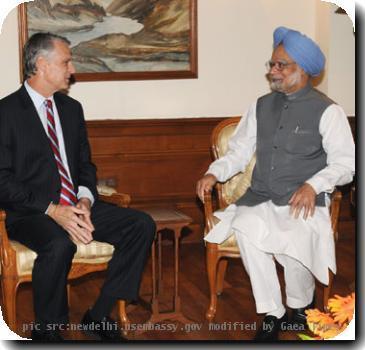Pakistan welcomes ‘revival of composite dialogue’, wants Kashmir resolved
By IANSTuesday, May 4, 2010
ISLAMABAD/NEW DELHI - Pakistan Tuesday welcomed what it termed the revival of the “composite dialogue” with India, a formulation New Delhi has avoided after the talks in Thimphu asking Islamabad to move beyond nomenclature to “chart the way forward”.
“The revival of the composite dialogue between Pakistan and India was the result of our successful foreign policy,” Foreign Minister Shah Mehmood Qureshi said in the National Assembly, the lower house of parliament, in Islamabad.
Holding that Pakistan wanted “result-oriented talks with India”, Online news agency quoted Qureshi as saying: “The Kashmir issue is in the agenda for dialogue with India. Pakistan would narrow down its priorities in talks with India and core issues need to be dealt with first.”
“We are taking action against those responsible of Mumbai attack and their trial is underway in the court and our courts are independent,” Qureshi said while alluding to talks between Prime Minister Yousuf Raza Gilani and his Indian counterpart Manmohan Singh on the margins of the SAARC summit in Thimphu April 29. Manmohan Singh has urged Gilani to expedite the trial of the perpetrators of the 26/11 Mumbai attack in the interests of better relations.
After the Manmohan Singh-Gilani talks, India has studiously avoided any mention of “composite dialogue”, saying both sides should move beyond nomenclature to introspect on the trust deficit entrenched in their relationship and chart the way forward.
The two leaders mandated their foreign ministers and foreign secretaries to work out the modalities of restoring trust, paving the way for substantive dialogue covering all issues between them.
Qureshi’s insistence on calling the decision to revive talks at the level of foreign ministers composite dialogue in Thimphu may not go down well in India.
New Delhi feels that since the composite dialogue was premised on Pakistan honouring its anti-terror pledge, it was no longer possible to carry on the same track.
The composite dialogue, the way New Delhi sees it, has outlived its utility and must give way to more focused talks addressing its core concerns on cross-border terror.
A new format is likely to shape up as the foreign ministers and foreign secretaries of the two countries meet in the days ahead.
According to Qureshi, water was an important issue “and it could not be resolved through statements but it through implementation of the Indus river treaty”.
“India tried to store 0.3 million acre feet water in Wullar barrage but we took up the issue in a constructive way and held 13 meeting with India in this respect and now no work is underway at this project,” he said.
Qureshi also said former Pakistan president Pervez Musharraf’s policies have damaged the Kashmir cause but the present government will continue its diplomatic and moral support of the Kashmiri people for a peaceful settlement of the issue.
Musharraf’s policies had “extensively harmed the Kashmir cause”, he said, adding: “We are trying our level best to overcome the loss inflicted over Kashmir during the previous government’s rule.”
“Kashmir has been the keystone of the foreign policy of Pakistan and we will continue the diplomatic and moral support of the Kashmiri people for peaceful settlement of the issue,” the minister said.
“We will take the Kashmiri leadership into confidence before holding talks with India on the Kashmir issue”, Qureshi added.
Noting that Pakistan’s point of view on Kashmir was akin to a resolution adopted by the UN, he said: “The peaceful resolution of Kashmir sans inclusion of the Kashmir leadership in the talks is impossible.”

